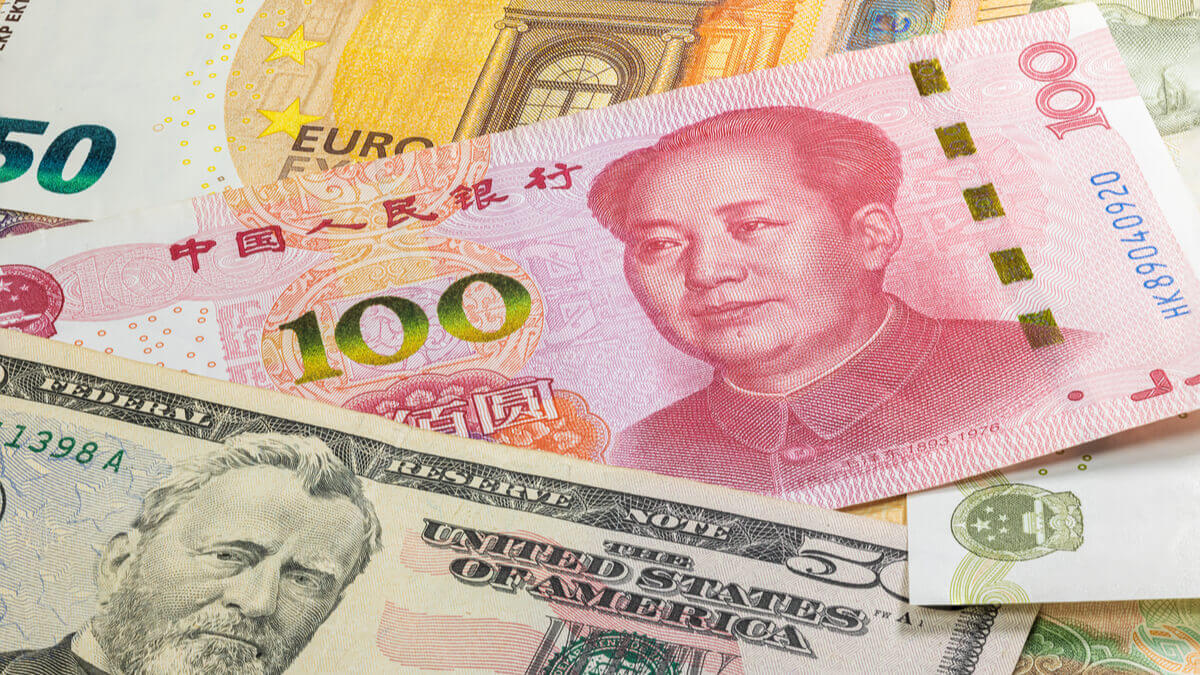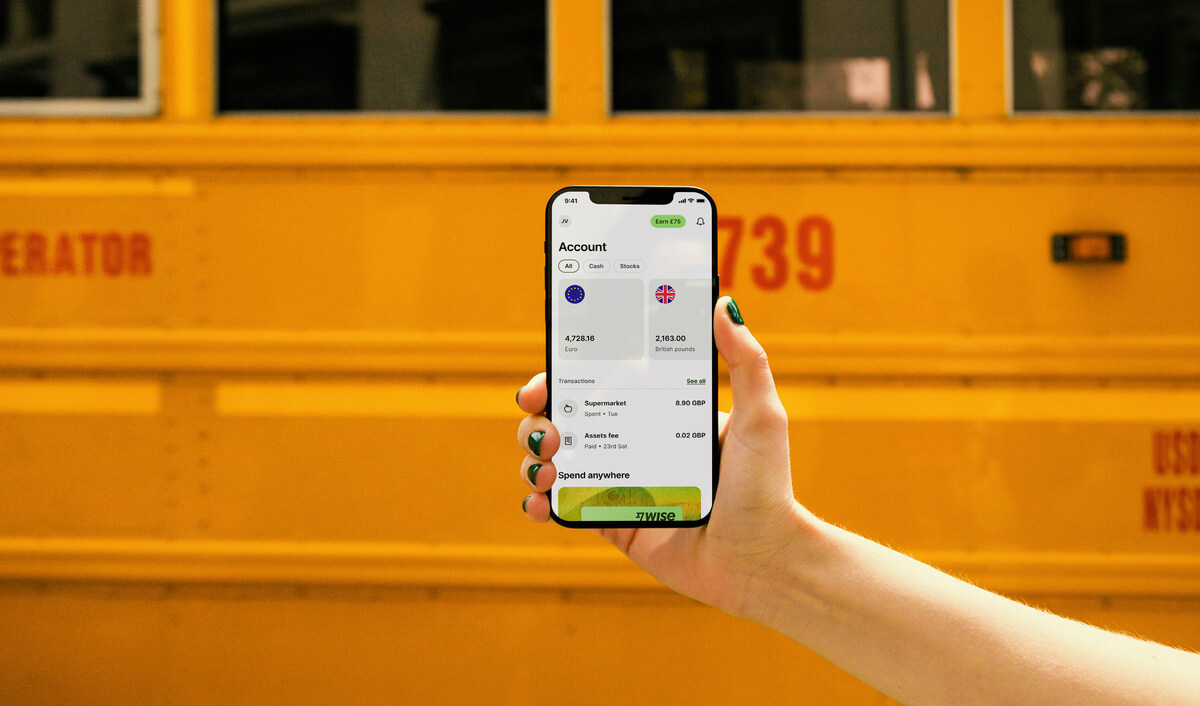Does Revolut work in Hong Kong?
Wondering if Revolut works in Hong Kong? Find out everything you need to know about using Revolut in Hong Kong.

China has established foreign exchange control regulations that include specific limits on carrying foreign currency across borders and conducting international transfers. If you're an expat living in mainland China, it's important to understand these regulations because of China's role as a major global economy with a managed currency system.This article provides an overview of China's foreign exchange control regulations and amount limitations to help you navigate transferring money in and out of the country.
If you need to send money to friends or family internationally, you can consider using Wise to transfer funds. In addition to transferring to bank accounts, you can also transfer directly to Alipay accounts, which is very convenient.
China prohibits the circulation of foreign currencies other than RMB in the domestic market and implements control measures for foreign exchange transactions and international settlements within its borders. However, China's foreign exchange controls began to relax in the late 2000s, no longer implementing a mandatory exchange settlement system, allowing domestic institutions or individuals to bring their foreign exchange income back to China or deposit it overseas at their discretion. However, relevant conditions and time limits are still set by the State Administration of Foreign Exchange (SAFE). In addition, China's foreign exchange control department also supervises domestic exchange rates and foreign exchange markets, and regulates the foreign exchange market according to changes in the foreign exchange market and monetary policy requirements.
The foreign exchange referred to in mainland foreign exchange control regulations means payment methods and assets denominated in foreign currencies that can be used for international settlement, including:
Whether foreign institutions or individuals invest in China, or Chinese domestic institutions or individuals invest abroad, they need to register with the foreign exchange control department. According to the "Notice on Requirements for Non-Bank Payment Institutions to Carry Out Large Transaction Reporting" revised by the People's Bank of China in 2018, starting from January 1, 2019, applications must be submitted for daily single or cumulative transaction amounts exceeding the following four categories³:
| Category | Limit |
|---|---|
| Cash receipts and payments (including settlement and sale of foreign exchange, exchange, remittance) | RMB 50,000 or more, foreign currency with a total value of USD 10,000 or more |
| Corporate transfers | RMB 2 million or more, foreign currency with a total value of USD 200,000 or more |
| Individual domestic transfers | RMB 500,000 or more, foreign currency with a total value of USD 100,000 or more |
| Individual cross-border transfers | RMB 200,000 or more, foreign currency with a total value of USD 10,000 or more |
Currently, under China foreign exchange control for individuals, Chinese residents can enjoy an annual personal foreign exchange facilitation quota equivalent to USD 50,000, which can be processed by providing valid identification documents. This China foreign exchange control USD 50,000 limit is the maximum amount individuals can convert annually without additional documentation.
But in fact, besides purchasing foreign exchange, there are many activities involving foreign currencies in daily life. The following table lists the most common transaction activities and their limits under China foreign exchange control for individuals:
| Limit | |
|---|---|
| Annual personal settlement and purchase of foreign exchange facilitation quota | USD 50,000 per year |
| Overseas card payments or mobile payments | Not included in the quota |
| Overseas cash withdrawals | RMB 10,000 per day, RMB 100,000 per year |
| Carrying cash | Equivalent to USD 5,000, amounts above USD 5,000 up to USD 10,000 require application for permission |
⚠️ Foreign exchange purchases for genuine legal needs are actually not restricted under China foreign exchange control for individuals, as long as you can provide corresponding proof, such as tuition fee certificates, medical certificates, etc., you can process foreign exchange purchases at banks according to actual needs
Currently, under China foreign exchange control regulations, the limit for each person to carry cash each time is RMB 20,000 and USD 5,000 in foreign currency. ⁴If you want to carry foreign currency equivalent to USD 5,000 to 10,000 out of the country, you need to apply for a "Permit for Carrying Foreign Exchange Out of the Country" ⁵from a designated bank. If you don't want to carry cash directly, you can consider using bank cards issued in mainland China to withdraw money abroad, with a daily withdrawal limit of RMB 10,000 and an annual limit of RMB 100,000.⁶ In addition, China also prohibits mailing RMB in and out of the country.⁷
It's important to note that restrictions on carrying cash out of the country will take into account the number of times you enter and exit the country. In other words, you cannot evade China foreign exchange control restrictions by splitting large amounts of foreign currency into several trips. The table below simply lists the relevant limits. If you exceed the limit, you need to apply for a permit from the relevant department.
| Limit | |
|---|---|
| First exit within 15 days | Equivalent to USD 5,000 |
| Second and subsequent exits within 15 days | Equivalent to USD 1,000 |
| Second and subsequent exits within the same day | Equivalent to USD 500 |
When entering or exiting China, travelers must declare if they are carrying cash exceeding certain thresholds. China's RMB exit limit under foreign exchange control is RMB 20,000. For foreign currencies, amounts equivalent to USD 5,000 or more must be declared to customs. Carrying amounts between USD 5,000 and USD 10,000 requires proper documentation from your bank.
If you violate the regulations for declaring large amounts of currency, you may face penalties including confiscation of undeclared amounts, fines, and in serious cases, criminal charges. It's always better to comply with regulations and make proper declarations when necessary.

We hope this article on China foreign exchange control can help expats and international travelers in China. If you need to make international transfers, consider using the market rate electronic transfer platform Wise. Through Wise, you can make international transfers with transparent fees and competitive exchange rates.
If you work in mainland China as an expat, you can also transfer your income internationally. Wise has recently launched an RMB remittance service. As long as you are not a mainland China passport holder and have paid taxes on income earned in mainland China after January 2019, you can transfer your income earned in mainland China to international bank accounts under your name.
Sources used in this article:
Sources last checked on 29-Jul-2021
*Please see terms of use and product availability for your region or visit Wise fees and pricing for the most up to date pricing and fee information.
This publication is provided for general information purposes and does not constitute legal, tax or other professional advice from Wise Payments Limited or its subsidiaries and its affiliates, and it is not intended as a substitute for obtaining advice from a financial advisor or any other professional.
We make no representations, warranties or guarantees, whether expressed or implied, that the content in the publication is accurate, complete or up to date.

Wondering if Revolut works in Hong Kong? Find out everything you need to know about using Revolut in Hong Kong.

This guide will compare the seven most popular and best credit cards from different providers in Hong Kong.

This article explains how to open a PayPal account in Hong Kong, a few steps to set up your account, and guidelines for using it.

Interested in getting a debit card in Hong Kong? This guide helps you navigate through the different options to find the best debit card that suits your needs.

Is Taobao available in english? In short - no but this guide will show you how to use Taobao in English and shop on China's leading e-commerce platform.

This guide covers everything there is to know about Octopus Wallet and Octopus Mastercard.